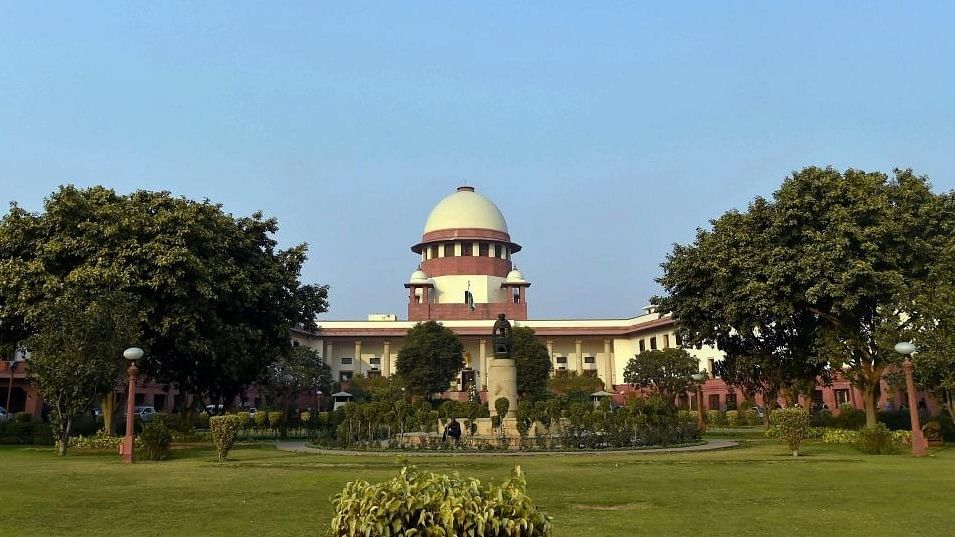
Supreme Court
Credit: PTI Photo
New Delhi: The Supreme Court is scheduled to pronounce its judgment on March 4 on reconsideration of its 1998 judgement in the P V Narasimha Rao case, infamously known as JMM bribery case, which held that MPs and MLAs enjoy immunity from prosecution for taking a bribe to make a speech or vote in legislature.
A seven-judge bench of Chief Justice of India D Y Chandrachud and Justices A S Bopanna, M M Sundresh, P S Narasimha, J B Pardiwala, Sanjay Kumar and Manoj Misra reserved the judgment on October 5, 2023 in the case titled as Sita Soren Vs Union of India.
During the hearing, Solicitor General Tushar Mehta submitted that bribery can never be subject-matter of immunity. He said that it is nobody's case that there should not be privilege or immunity, and the object of constitutional provisions was meant for performance of legislative duty fearlessly.
He said the only question is whether bribery should be covered by this privilege or immunity.
Mehta asked the court to not go into the immunity aspect under Article 105 of the Constitution.
He said that the offence of bribery is complete when a bribe is given and accepted by the lawmaker and it can be tackled under the Prevention of Corruption Act.
Mehta said there can be perhaps one more angle from which this court considers whether bribery can be protected by immunity or privilege. In the 1998 judgement, neither majority or minority examined the issue from this perspective, he said.
Mehta said the short question, on which present reference is based, is whether the offence of bribery is complete outside the House.
“If it is so, this court does not need to go into the question of immunity,” he said.
Attorney General R Venkataramani, also representing the Centre, said it is either speech or conduct in relation to manifold functions of the legislature where elected representatives participate, that stands protected.
The AG said wherever this immunity is claimed, the inquiry will be whether speech or vote is in relation to manifold functions discharged at the legislature, and any conduct other than conduct related to legislative function will fall outside of this.
The AG said the elected representative must be free to perform legislative functions without being impaired or exposed to undue exertions and coercion.
He also said at the same time, the elected representative’s office shall not be so exercised so as to dilute the trust and its importance and “we are looking at how to balance these”.
In 2019, a bench led by then CJI Ranjan Gogoi, which was hearing an appeal filed by Sita Soren, had referred to a five-judge bench the crucial question, noting it had “wide ramification” and was of “substantial public importance”.
It had ordered to set up a larger Constitution bench to decide if a lawmaker can take refuge under immunity clause to avoid criminal prosecution for voting in Parliament or Assembly after taking bribe from some beneficiary.
The question before the top court had arisen as Sita Soren, JMM chief Sibu Soren's daughter-in-law, questioned her prosecution on charges of bribery during the Rajya Sabha elections of 2012.
